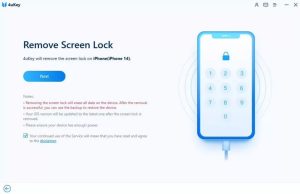Whether you’re a parent, employee or just a concerned citizen, you’ve probably seen plenty of news stories about security breaches and hacks. It’s hard to keep up with everything, but there are a few key hacks and leaks that you’ll want to know about, so you can protect yourself from cyber attacks.
Equifax
Earlier this year, Equifax announced that hackers had compromised their systems. The company said they had access to names, addresses, Social Security numbers, driver licenses and credit cards. They also said they had gained access to US taxpayer ID numbers.
The hack started about six months ago. The breach has since cost the company around a billion dollars and could have ramifications for the company. It has also been accused of violating consumer protection laws in the U.S. and Massachusetts.
The FBI launched a criminal investigation into the Equifax breach in September. Meanwhile, the US Justice Department indicted four Chinese military members for cyber-attacks against the company. It is believed that the hackers were able to access US driving licences and taxpayer ID numbers.
Uber
During a cybersecurity incident, hackers gain access to Uber’s system. The company believes the hacker gained access through a social engineering attack. However, it is unclear how sensitive data was accessed.
During the incident, the hacker gained access to Uber’s Privileged Access Management (PAM) system, which manages access to several systems. This tool is used to monitor employees’ access to critical information. In addition, the hacker gained access to a number of internal tools. Despite the fact that the Uber security team shut down the compromised tools, the hackers continued to access the systems.
The threat actor accessed the Uber Slack server. They also accessed the company’s internal email dashboard. The hacker posted an explicit image on the company’s Slack channel.
FriendFinder
FriendFinder is one of 2022’s biggest hacks and leaks. The service has been the target of a security breach that exposed private information of nearly 4 million members. The company claims to have fixed the flaw but they are not letting the customers know. The company has hired an outside firm to help them with the investigation.
The service reportedly used an outdated security algorithm to process user information. The data was a mix of usernames, passwords, and email addresses. It was also vulnerable to a local file inclusion flaw that allows the attacker to control what files are executed.
In May 2015, FriendFinder was hacked and 3.5 million user records were revealed. The service was not notified of the breach until ZDNet contacted affected users.
Carding marketplaces
Several carding marketplaces popped up in the months after the Joker Stash’s demise, and most of them have since closed their doors. These underground sites have become popular for their ability to make a buck off stolen payment card data. They also pose a threat to consumers, as the number of fraudulent online vendors increases.
The most notable site in this category is Club2CRD, a Russian carding forum that is popular in both Russia and China. The site offers an Escrow thread that allows users to use the forum as an Escrow service. It’s a useful feature if you are buying from a trusted vendor.
DRA breach
Throughout 2022, a number of data breaches hit the public domain. Aside from identity theft, many consumers also suffered monetary loss. Some companies have reported hundreds of millions of dollars in losses. These hacks and leaks have affected consumers from all over the world.
One of the biggest data breaches in history happened in late December. A spam email operator accidentally exposed 1.37 billion records. This breach raised questions about the security of voter information.
Another major data breach occurred in early March. A Vietnamese man posing as a private investigator gained access to 200 million Americans’ private information. This incident was part of a larger, coordinated attack.
Cambridge Analytica
During the first week of the scandal, Facebook’s market cap plummeted by $50 billion. However, the scandal continues to roil the social media giant. In recent months, prosecutors have focused on potential financial crimes.
The latest revelations tack a seemingly grass-roots movement into more sinister light. Cambridge Analytica tapped data from tens of millions of Facebook users without their consent. The company then used that data to target swing voters. The information, which included psychological profiles, was repurposed for political campaigns.
According to a report from the New York Times, the investigation into the Cambridge Analytica-Facebook data leak was conducted by the Department of Justice. The investigation revealed that the company may have compromised the data of 87 million people.






More Stories
The Rise of Ambient Computing and Invisible Interfaces: When Technology Fades Into the Background
Integrating Digital Twin Technology for Small-Scale Manufacturing and Logistics
The Developer’s Guide to Post-Quantum Cryptography Implementation